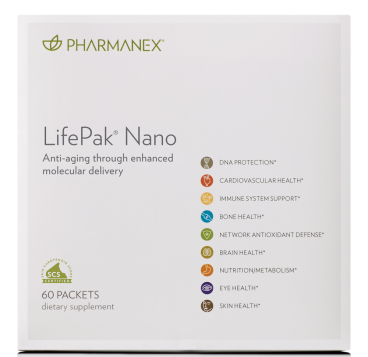A friend of mine told me about green coffee bean extract a few weeks ago, and I have finally found a minute to do a little research.
My sister who lives in London, and my older brother both have Type II Diabetes. I am always looking for natural ways one can keep blood sugar levels in line, because sometimes we all cheat on our diets!
I posted the list of Foods that Help Lower Blood Sugar, so add this to them.
I don't subscribe to TV, but I understand Dr. Oz had a show on the benefits of Green Coffee Bean extract. After doing a little digging here's what found:
Green coffee bean extract is a powerful anti-oxidant
Friday, May 18, 2012 by: Dr. David Jockers
There are two major types of coffee plants; Arabica and Robusta. The highest quality green coffee bean extract comes from the Arabica plant which is higher in the polyphenol anti-oxidants chlorogenic and caffeic acids. The majority of coffee drinkers are missing out on much of the benefits that coffee contains. The deep roasting process significantly reduces the anti-oxidant content.
Additionally, coffee is one of the most widely pesticide/herbicide sprayed crops in the world. Studies have shown over 1000 toxic chemicals in roasted coffee. It is essential to use organic coffee that is free of these dangerous chemicals that mimic hormones, congest our liver, kidneys and bowels and promote cancer growth.
Another powerful carcinogen is produced when high temperature cooking (baking, frying & roasting) damages sugars which then interact with the amino acid asparagine. This chemical reaction creates the potent carcinogen acrylamide. Instant and deeply roasted coffee has been shown to have significantly more acrylamide than brewed coffee.
There are many great health benefits associated with coffee consumption. A recent 2011 study indicated that individuals who consumed the most coffee had the lowest risk of type II diabetes. The researchers found that the chlorogenic acid reduces the release and creation of excess glucose in the body.
Blood sugar balance
Blood sugar balance is an absolutely critical measure of healthy aging in the body. Too much sugar and grains in the diet will lead to blood sugar imbalances. The body then goes through spirals of hyperglycemia and hypoglycemia. These blood sugar imbalances cause inflammation in the body that damage hormonal control systems, organs, and immune function.
Glucose overload is another major cause of blood sugar imbalances. The common sign of this is elevated fasting blood sugar levels. At night, the individual has elevated glucose-6-phosphatase (G6P) enzyme activity that causes an elevated release of blood sugar from the muscle and liver. The body is basically eating these tissues.
The latest evidence shows that healthy fasting blood sugar ranges are between 65-85 mg/DL. Meanwhile, post meal ranges (2 hrs after) should never go above 120 mg/dL. When levels test higher it is a clear indication of oxidative stress damaging cells and tissues of the body.
The major anti-oxidant in green coffee bean extract, chlorogenic acid, has been shown to profoundly inhibit the release of the G6P enzyme which significantly stabilizes blood sugar levels. In one clinical study a dose of 400mg of green coffee bean extract showed a 32% reduction in the post meal blood glucose spike. This translates into someone who would have an extremely dangerous 160mg/dL blood sugar level down to a safe post-meal level of 109mg/dL
Stable blood sugar allows for better energy, mental clarity, hormone function, detoxification capabilities and weight loss. Raw green coffee bean extract along with other superfoods such as cacao and cinnamon all show great results in stabilizing blood sugar and improving overall bodily functions. The combination of these three also synergizes to create even greater effects in the body.
Due to the diuretic effects of caffeine in the coffee it is necessary to consume extra water. The water should ideally be from a natural spring or have gone through a deep filtration process to remove environmental toxins.
Sources:
http://www.ncbi.nlm.nih.gov/pubmed/20171062
http://greencoffeebeanbenefits.com/
And a second reference that states:
There are many reasons you may not be losing weight. If you started lifting weights, then chances are you are building muscle, which would negate any fat loss. This is good because muscle burns more calories than fat, so chances are you’ll see nice weight loss results down the road.
Second, if you do not sleep enough or aren’t eating enough, your body’s metabolism will slow down, negating the powerful weight loss properties of green coffee extract. Women should eat at least 1,200 calories per day and men should eat at least 1,500 calories per day.
Third and finally, the most likely culprit is that you’re still eating too much. Studies have shown that humans tend to under-estimate their caloric intakes by 25-40% on a normal basis. Therefore, you could be eating 300-600 calories more per day then you think you are.
Another likely culprit for overeating is due to emotional eating. Dr. Oz recently tackled this problem that affects a large percentage of the population. You see, when we are sad our dopamine levels are significantly lower. To increase these pleasure chemicals in our body, we eat junk foods, which have chemicals designed to increase these dopamine levels.
To combat this, Dr. Oz recommends taking saffron extract, a natural extract from a flower grown in tropical regions. Saffron extract replaces the dopamine levels you are lacking, which prevents you from snacking on unhealthy foods.
Source:
CAUTION: If you have hypertension, or a medical condition that cautions against the consumption of Caffeine, do not take this product. Always check with your doctor before starting any Supplement.
~ Be Well! ♥










